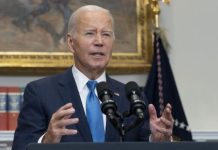The approval means eligible children could start receiving their shots as soon as the weekend.
“We are focused on making sure Americans have access to COVID-19 vaccines and boosters, which are very best tools to prevent severe disease and save lives. Thanks to the FDA and CDC’s rigorous, comprehensive, and independent review of the data and their strict commitment to following the science, children 5 through 11 are now eligible for a booster shot of the Pfizer-BioNTech COVID-19 Vaccine,” Health and Human Services Secretary Xavier Becerra said in a statement.
“Nearly 102 million Americans have already received a booster shot, but too many people haven’t yet stepped up to get their booster shot. As FDA and CDC have made clear, getting a booster is incredibly important, including for children 5 through 11. If you are vaccinated and boosted, your odds of getting severely ill, going to the hospital, or dying are dramatically lower.”
The advisory committee voted Thursday morning to recommend the COVID-19 booster.
The decision also means children who are immunocompromised who already received a booster would be eligible for a fourth dose.
The committee regularly issues guidance for vaccine administration.
Eligible children would need to have had their second dose of the RNA vaccine by at least Dec. 19.
The committee reviewed data showing 189 children between 5 and 11 have died of COVID-19 over the course of the pandemic. Of children in that age group, 28% were fully vaccinated against COVID-19. That rate is far lower than the rate of the overall population.
“It is sobering that we have experienced over a million deaths in the U.S. as a consequence of COVID infection,” Dr. Grace Lee, a pediatrician at Stanford University, told The New York Times.
On Tuesday, the U.S. Food and Drug Administration authorized the use of a single booster dose of the Pfizer-BioNTech vaccine for children in the same age group.
“While it has largely been the case that COVID-19 tends to be less severe in children than adults, the Omicron wave has seen more kids getting sick with the disease and being hospitalized, and children may also experience longer term effects, even following initially mild disease,” FDA Commissioner Dr. Robert M. Califf said in a statement Tuesday.






